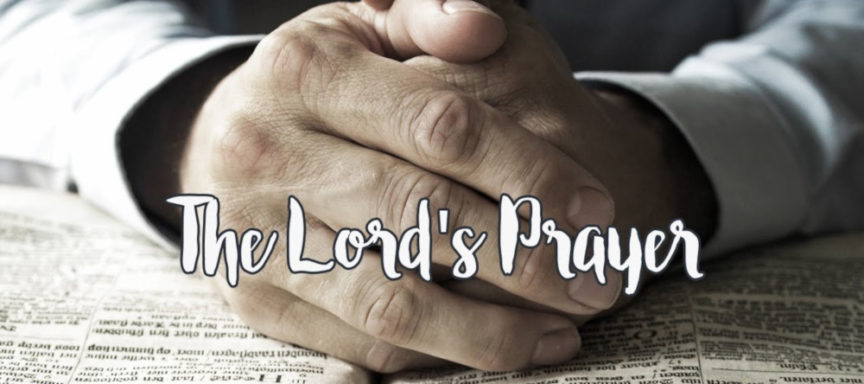Pray like this:
Our Father in heaven,
Matthew 6:9-13
may your name be kept holy.
May your Kingdom come soon.
May your will be done on earth,
as it is in heaven.
Give us today the food we need,
and forgive us our sins,
as we have forgiven those who sin against us.
And don’t let us yield to temptation,
but rescue us from the evil one.
The interesting thing about the Lord’s Prayer (as we call it) is that it came about as the direct result of Jesus’ disciples asking him to teach them to pray. (Luke 11:1.) Therefore prayer is instruction. Why would Jesus teach something that he did not expect us to imitate in some way?
Jesus’ model prayer begins with God. Indeed, all legitimate prayer begins anchored in God. Not only does it remind us to whom we are praying, but it also causes us to think about God’s interests and intentions for us as his children. 1 John 5:14 echoes this when the writer says, “And this is the boldness we have in him, that if we ask anything according to his will, he hears us.” “According to God’s will.”
Understanding that prayer is anchored in God and made in awareness of God’s will results in our desiring the growth of God’s kingdom. How can we ask for God’s kingdom to come if we are preoccupied with our own desires? Mary, the mother of Jesus perfectly reflects this attitude when she says to Gabriel, “I am the Lord’s servant. May everything you have said about me come true.”
One of the marks of the Lord’s Prayer is its modesty. It does not ask for wealth or houses or success, but only for daily bread – what is needed in order to do God’s will. The parents of a friend of mine were missionaries in Africa who came back to the US in order to get nursing degrees so they could serve Africans better. They lived what I would call “stripped-down” lives in order to stay focused on God’s will.
Asking for “daily” bread seems to also recognize the hunger and poverty of much of the world. Such painful awareness does not want to be rich but to just have enough to do God’s will.
Following the request for daily bread, Jesus instructed that we should confess our sins. Of course, that is nothing new to God, but recognizing our need for God’s forgiveness is a needed part of our prayers. Again, this is anchored in the character of God, hallowed, holy, and transcendent. This is part of the modesty in the prayer. There is no boasting arrogance, but only holy contrition.
However, Jesus said that we must be willing to forgive others before we can ask for ourselves. To be forgiving is to witness the healing of relationships that have been broken in the past. Jesus is adamant about this. Forgive or die.
Finally, Jesus instructed us to ask for delivery from temptation or trial. What Jesus meant by this is open for debate. Some think it is a reference to the suffering and turmoil when Rome attacked Jerusalem in 70 AD.
Others think it is a daily temptation. But God does not tempt us, according to James, James 1:15. Temptation is ever-present in the tension between flesh and spirit.
It is more plausible that Jesus may be referring to trial in general that comes from opposition to the gospel. “Deliver us from the time of trial.”
One thing that is evident in the model prayer is that it eliminates the view of God that God is an ATM to whom we turn when we want a new job or a new house or to win the lottery. Since Jesus is responding to the request to “teach us to pray,” he would have included these petty requests if he wanted us to pray about them.
So Jesus left us this stripped-down, basic prayer for the things we truly need.


Comments
It’s so tempting, as disciples, to define “wants” as needs.